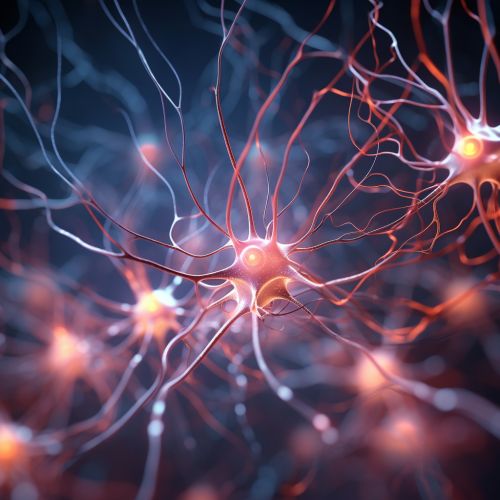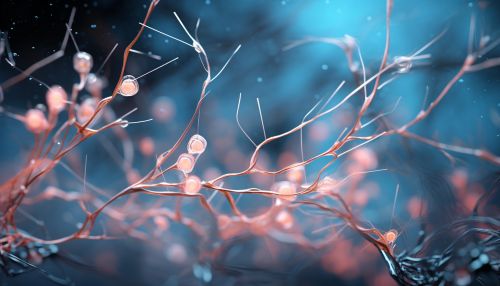Long-Term Depression
Introduction
Long-Term Depression (LTD) is a process that occurs within the neurons of the brain, resulting in the decrease of synaptic strength between two neurons. It is a form of synaptic plasticity that, along with Long-Term Potentiation (LTP), contributes to the brain's ability to adapt and learn. LTD is a fundamental process in the brain's ability to encode memories and information.


Mechanism of Long-Term Depression
The mechanism of LTD involves a decrease in the effectiveness of synaptic transmission. This is achieved through the reduction of the number of neurotransmitter receptors on the postsynaptic neuron or a decrease in the release of neurotransmitters from the presynaptic neuron.
The process of LTD is triggered by low-frequency stimulation of the synapse, which leads to a decrease in the intracellular concentration of calcium ions (Ca2+). This decrease in calcium concentration activates a series of intracellular processes that result in the removal of AMPA receptors from the postsynaptic membrane, thereby reducing the neuron's responsiveness to neurotransmitters.
Role in Learning and Memory
LTD plays a crucial role in the brain's ability to learn and remember. It is thought to be responsible for the elimination of unnecessary or redundant synaptic connections, a process known as synaptic pruning. This process is essential for the refinement of neural circuits during development and for the adaptation of these circuits in response to experience.
In the context of learning and memory, LTD is thought to contribute to the forgetting of information. This is because the weakening of synaptic connections through LTD reduces the likelihood that the synaptic connection will be activated in the future, thereby reducing the strength of the memory.
Long-Term Depression in Disease
Abnormalities in LTD have been implicated in several neurological and psychiatric disorders, including Alzheimer's, schizophrenia, and autism spectrum disorder (ASD). In these conditions, LTD may be either excessively active, leading to an excessive loss of synaptic connections, or insufficiently active, leading to an excessive number of weak or inefficient synaptic connections.
Conclusion
Long-Term Depression is a fundamental process in the brain's ability to adapt and learn. It plays a crucial role in the refinement of neural circuits and the encoding of memories. Understanding the mechanisms of LTD and its role in disease could lead to the development of novel therapeutic strategies for a range of neurological and psychiatric disorders.
